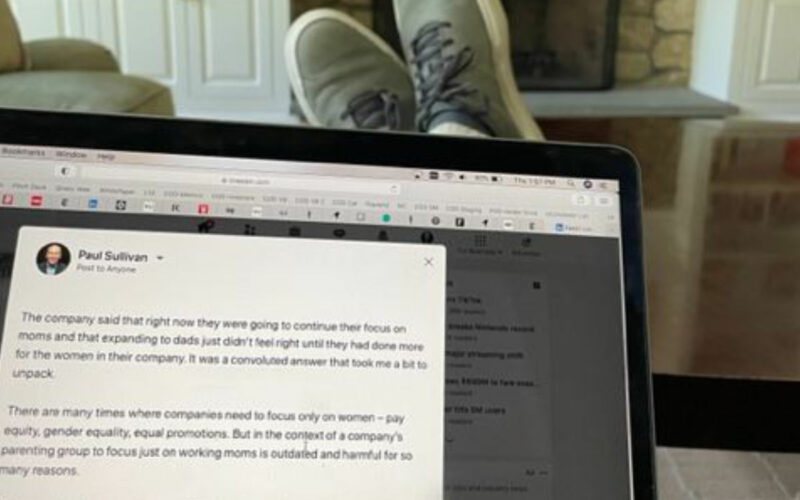Who should be part of a company’s parent group?
I’ve had time to think about that today.
Today I had a morning meeting with three people, two of whom I already know well. It would surely roll into lunch. My wife had five meetings planned in New York City that had taken her weeks to stack up.
When our teenage daughter came downstairs with an eye that was red and swollen, I knew she was going to the pediatrician, and I was canceling my meeting. My wife didn’t ask; she didn’t need to do. And while I know she appreciated it, there wasn’t really any choice to make. I’ve advocated for companies to add #CareDays for employees to be honest about why they wouldn’t be able to work that day, so I certainly was going to take one myself.
My daughter went back to bed and I made an appointment with the pediatrician. And since I was given back hours of my morning I caught up on emails and a lot of those tasks that you push off. Could I schedule calls or Zooms? Not really since I didn’t know what my daughter would need, but I’ve been able to care for my daughter and email while she rests.
I’ve also had time to think about an email I received from a company that was interested in the type of talks and workshops we give, aimed at shifting the narrative around working parents.
The company said that right now they were going to continue their focus on moms and that expanding to dads just didn’t feel right until they had done more for the women in their company. It was a convoluted answer that took me a bit to unpack.
There are many times where companies need to focus only on women – pay equity, gender equality, equal promotions. But in the context of a company’s parenting group to focus just on working moms is outdated and harmful for so many reasons.
If the pandemic has taught us anything, it’s that working parents learned to trade off responsibilities in the work-from-home environment. Now back in the office, or whatever form the office takes, companies should get on board with the notion that parenting programs include dads and moms.
Why?
- It removes the stigma that parenting and caregiving is something done only by women.
- It allows men to feel that they can be Lead Dads, not just Event Dads, at work – and be open about their involvement at home.
- Corporate level initiatives will reduce the perceived and often real penalty working parents face for being human – for not being some Milton Friedman incarnation of a model worker who sits at a desk focused only on work.
Companies want creative, engaged employees who bring their full selves to what they’re doing. Their policies should reflect that. Companies need to normalize both men and women having lives and caregiving responsibilities outside of work and trust that with the right support working parents will get everything done.
Now off to the pediatrician.









